Beyond: Two Souls review: Beyond awful
Beyond: Two Souls review: Beyond awful
Quantic Dream's Heavy Rain follow-up is an unforgivable step back for storytelling.
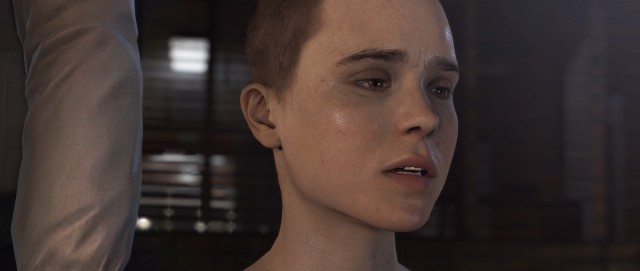
This was approximately what my face looked like when trying to make sense of Beyond's story.
Developer: Quantic Dream
Publisher: Sony Computer Entertainment
Platform: PlayStation 3
Release Date: October 8, 2013
In 2010, Heavy Rain changed the way I looked at game narratives. For all the problems with its characterizations and story structure (and there were quite a few), the game was notable for a free-flowing narrative that responded and adapted to player choices well past the point that other games would have forced a "Game Over" and a reload from the last checkpoint. Few other games before or since have combined such cinematic storytelling with so many meaningful choices, with consequences that echo heavily through the game even to the point of allowing for the death of one or more of the multiple protagonists. The result of this sprawling-but-never-out-of-control narrative structure was a game that gave a real sense of tension to even small decisions, one where I frequently paused and carefully considered my options before choosing what to do next.
I rarely if ever stopped to consider a choice in Beyond: Two Souls, Quantic Dream's much-anticipated, PS3-exclusive follow-up to Heavy Rain. Instead, I mainly sleepwalked through a seemingly endless sequence of practically preordained story beats, struggling to care as I was dragged through a clichéd plot with no sense of meaningful agency. This would be somewhat acceptable in a game where tight gameplay is the focus and where the story acts as nothing more than a glorified excuse to set up the next action scene. For a game as story-focused and gameplay-free as Beyond, though, it's downright unforgivable.
A mess of a story
Beyond is the story of Jodie, a "special" young woman (as we're told many a time), and Aiden, the invisible, ghostly companion that she sort-of-but-not-really controls (the game stresses that Aiden makes his own decisions, but Jodie is frequently seen directly controlling him). Their story is told in a series of disjointed flashbacks to Jodie's memories, jumping backward and forward in time in a way that slowly fills in a complete backward-looking story arc where we see her as an emotionally abandoned young girl, scientific test subject, (somewhat hard-to-believe) elite CIA agent, and incredibly predictable savior of the world.The time-jumping structure is an interesting concept. In better hands, I could see it being used to create a strong sense of dramatic irony, giving the player information that the characters don't have or creating intrigue by showing characters reacting to moments the player has yet to experience. As it stands in Beyond, though, the narrative jumps seem random and meaningless, never adding up to more than a series of disjointed and barely connected vignettes throughout Jodie's life. Each new scene is a melodramatic set of events that get thrown at Jodie with little to no organic connection to what came before. One moment you're helping someone give birth. The next you're escaping from a fire. The next you're working on a ranch, setting up your apartment for a dinner date, overthrowing an African dictator, or saving the world from an accidentally apocalyptic machine (this last one shows up a few times, actually). There's usually only the thinnest of segues connecting these highly disparate set pieces, and you'll struggle to assemble them into anything greater than the parade of storytelling clichés and badly rendered tropes that they are.
It doesn't help that the story is written and presented with all the subtlety and artificial gravitas of a high school freshman trying to write something Important-with-a-capital-I. Through it all, there's a sense of explicit emotional manipulation. There are constant moments where the music swells, characters' faces get scrunched up, and the game practically throws up a big metaphorical sign saying "Feel something, dammit!" Only you feel nothing, because the plot and writing are way too overwrought and earnestly direct, and because the game never really succeeds at making Jodie a relatable and believable character with interesting motivations or reactions.
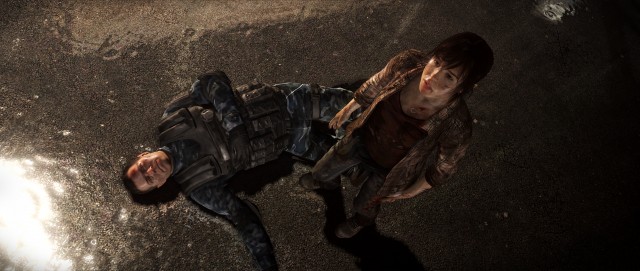
This is the part where you're supposed to feel something. FEEL SOMETHING!
There's a disappointing lack of growth to Jodie as a character; she just kind of pinballs from one manipulatively melodramatic moment to the next, expressing a literal grab bag of vaguely correct emotions at the right times (and I mean literally: you often get to choose the emotion from an on-screen grab bag). Jodie never really develops any new traits or wrinkles to her character based on past experiences. On the contrary, there are quite a few moments where Jodie seems to absolutely forget deeply held beliefs she held relatively recently in story time in favor of a narratively convenient amnesia. And she's by far the most fleshed-out character in the game; the few ancillary characters that dart in and out of her life are pure ciphers whose motivations and reactions often beggar belief.
Through it all, it's abundantly clear that you can only affect the outcome of the disjointed story in the most perfunctory ways, and you're simply being dragged along by a narrative that has been almost completely set for you. In one dramatic moment, I intentionally failed the (almost laughably easy) timed button-press tasks the game threw at me, only to trigger a cut scene where Jodie is somehow saved and her original objective is achieved off-screen by military explosives. In another instance where I was steering a motorcycle, I stopped steering with the analog stick and simply held down the accelerator, only to find that the game piloted me safely to the end of the "dramatic" chase anyway. I can think of no better metaphor for the barely interactive nature of Beyond's storytelling and gameplay than that.
The game tries its best to offer up a few moral and personal dilemmas, but most of them are akin to a choice between doing something blindingly obvious and simply ignoring the situation by leaving it. These few decision points quickly lose any assumed sense of import when you realize everything will more or less shake out the same way regardless of which path you choose. In the end, the game shoehorns a few relatively important choices into its final scenes, but they come out of nowhere rather than feeling like major decisions that the game has been building toward.
Find-the-dot gameplay
There's no sense of tension to even the most over-the-top dangerous moments the game throws at you. That's partly because you know Jodie is going to survive until she's able to give the "flashback" that starts the story and partly because Aiden acts as the ultimate Deus Ex Machina the moment things get even the least bit out of control. Your ghostly companion can travel through walls and ceilings and transmit visual and audio information to Jodie from meters away. He can push things over or mess with electronics to attract attention. He can choke people to death or take control of their brains and bodies for an indeterminate amount of time. He can call up living memories from a corpse. He can even create a force field that protects Jodie from absolutely all harm. In the end, he's the ultimate answer to pretty much every narrative or gameplay problem the game has (the few moments where he's taken out of commission feel forced).Theoretically, I could see being able to control Aiden being a heady power trip for the player, who would have to learn how to use his powers creatively to aid Jodie in solving some wide-open puzzles and direct how the story unfolds. Instead, Aiden's powers are forced into strictly proscribed situations that feel like they're just there to fill story holes. The game practically tells you outright specifically what to do with Aiden and when to do it, sometimes even switching the player from Jodie's perspective to his ghostly point of view automatically. At these points, you have to float around until you find one of the pieces of the environment highlighted with a blue dot (or a person with a distinct orange aura) and interact with them however the game tells you to. There's no creativity or even basic puzzle-solving skill needed to complete the vast majority these tasks; it's just a bit of find-the-dot interactive busywork before you can get on to the next cut scene.
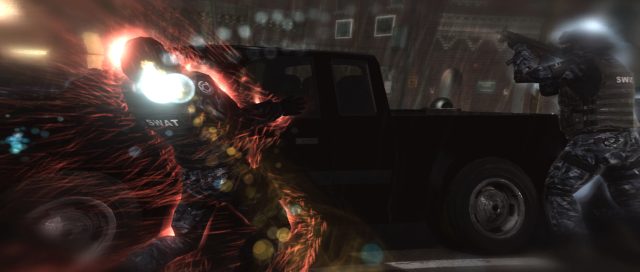
The glowy particle effect is how you know Aiden has done what the game expects of him.
The glowy particle effect is how you know Aiden has done what the game expects of him.The idea that you're simply hunting for the next highlighted environmental bit to push the story forward extends to the portions of the game where you're controlling Jodie. Yes, you can walk around somewhat freely through some intricately detailed environments, but it feels like walking through a film set, a place where the world will fall apart if you step off a very narrow path. Indeed, the game constantly uses short cut scenes to push you in the right direction if you wander off somewhere you aren't supposed to go. In one particularly frustrating section, Jodie gets to ride a horse through a beautifully rendered desert, but any attempt to ride off the beaten path is met with a quick correction back to the shortest point between two story beats. It's a familiar feeling by that point in the game: feel free to look at the pretty scenery, but don't touch it in any meaningful way.
When you're not walking directly from white dot A to white dot B as Jodie, you're taking part in extremely clunky action scenes. These are choreographed well enough, but the gameplay boils down to waiting for a cutscene to go into slow-motion, then flicking the analog stick in the direction Jodie is already moving in an extremely generous window of two seconds or so. These sections play out like a glorified version of Dragon's Lair, only dumbed down so that it's almost impossible to fail—and with no significant penalty if you do (and without the expressive animation, either).
It's a shame that Beyond fails so utterly at providing a convincing story or any engaging gameplay, because it does a lot of things right as far as presentation. Ellen Page in particular does the best she can to save the weak material she's given, and her every face-twitch and body movement is rendered beautifully through some excellent motion capture (though there are a lot of awkward animation transition points, often badly masked by cut scenes or camera jumps). The game is a visual feast, drawing quite a bit out of the aging PS3 hardware and rendering some truly breathtaking environments (though there is a bit of a waxy, uncanny valley effect on some of the character close-ups). There are even a few bits of genuine emotion that somehow wriggle their way out of the clunkiness, too, particularly in the few scenes that show how Jodie's special powers ostracize and distance her from other kids.
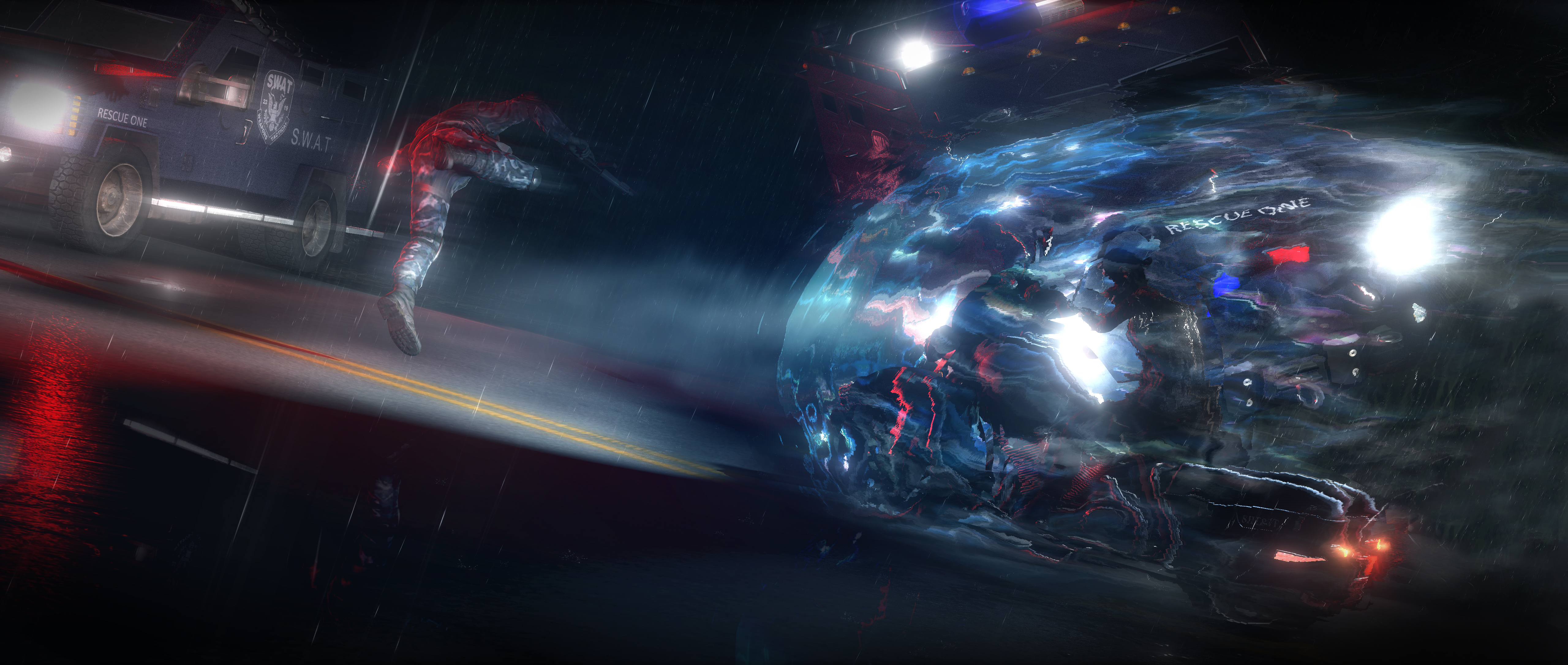
Oh, did I mention Aiden can create a force field to protect Jodie from all harm? 'Cuz he can.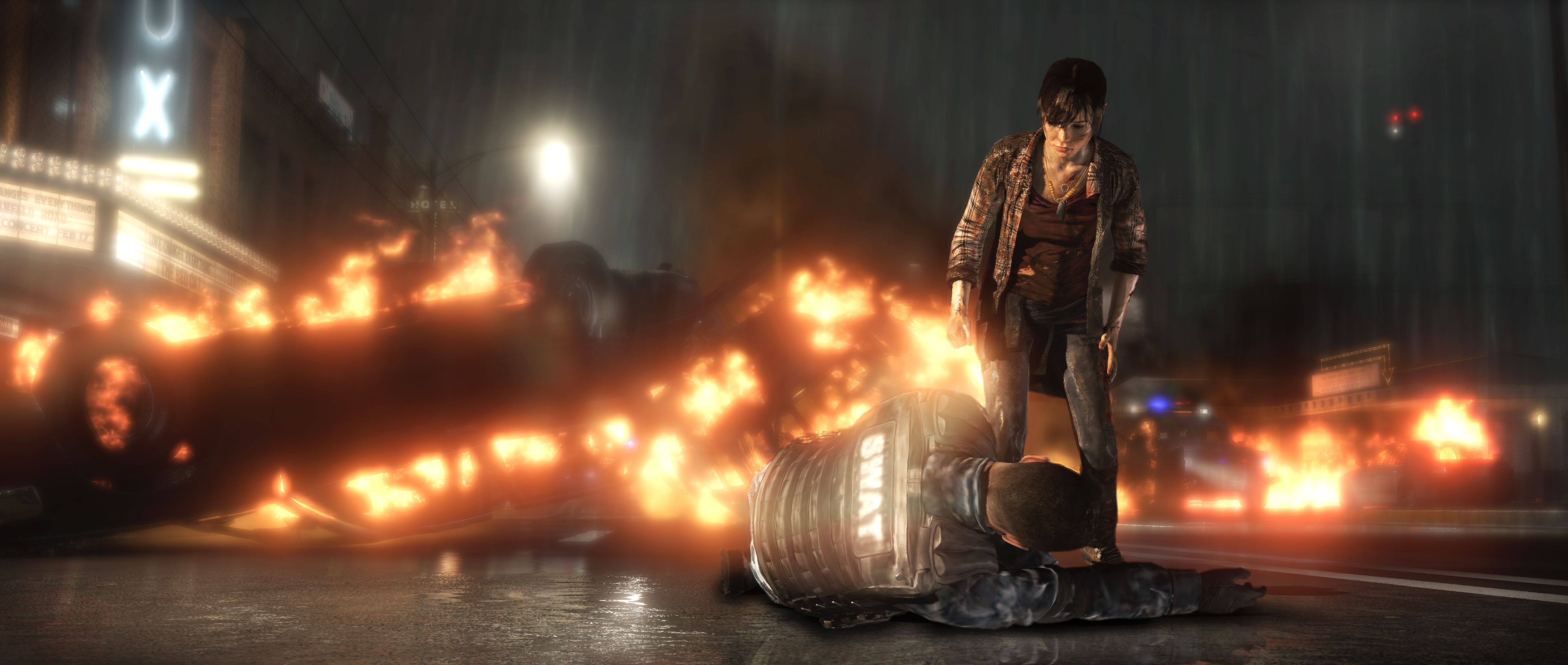
Jodie tries out being a badass. It's... not a great look for her.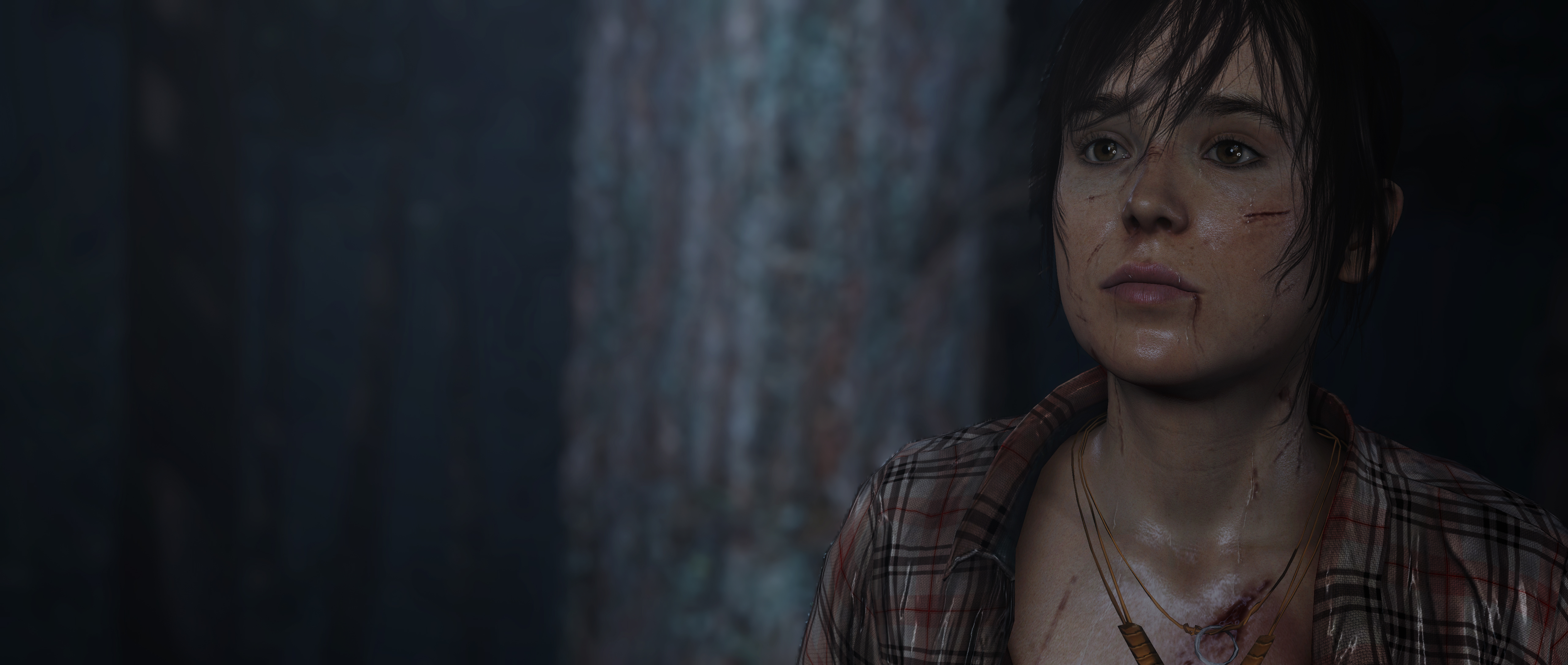
Virtual Page conveys a lot through subtle facial expressions. Too bad the content she's conveying is so awful.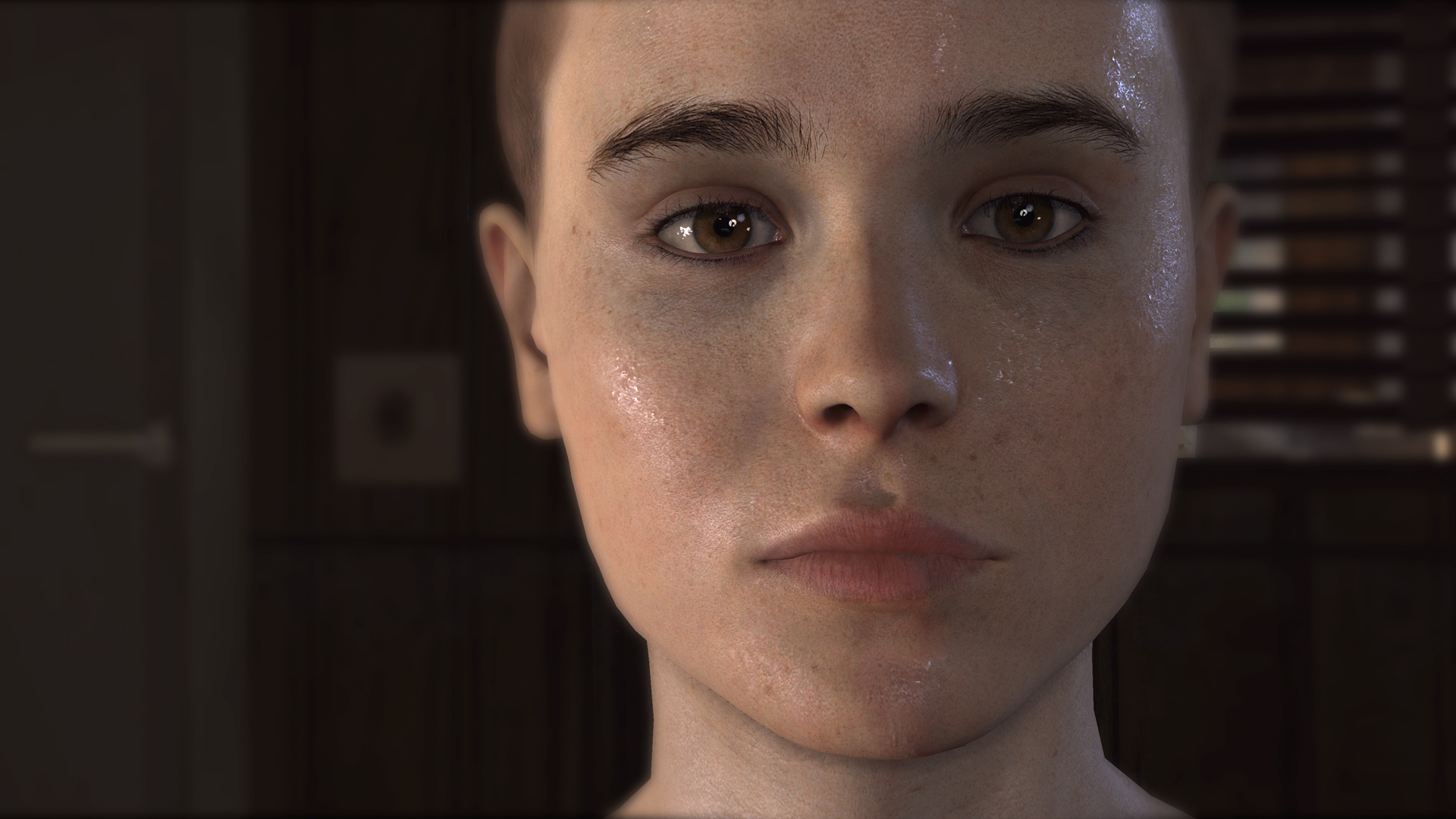
If I gave review sub-scores, the "Making a 3D model of Ellen Page" score would be 10/10.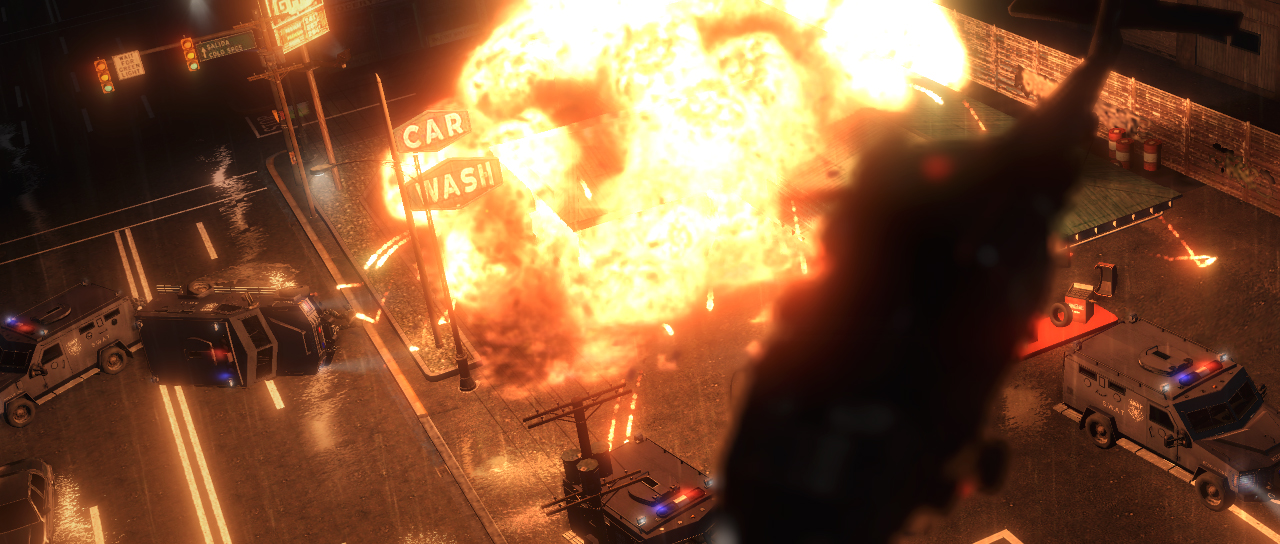
The game is at its worst when its trying to imitate an action game, minus the actual action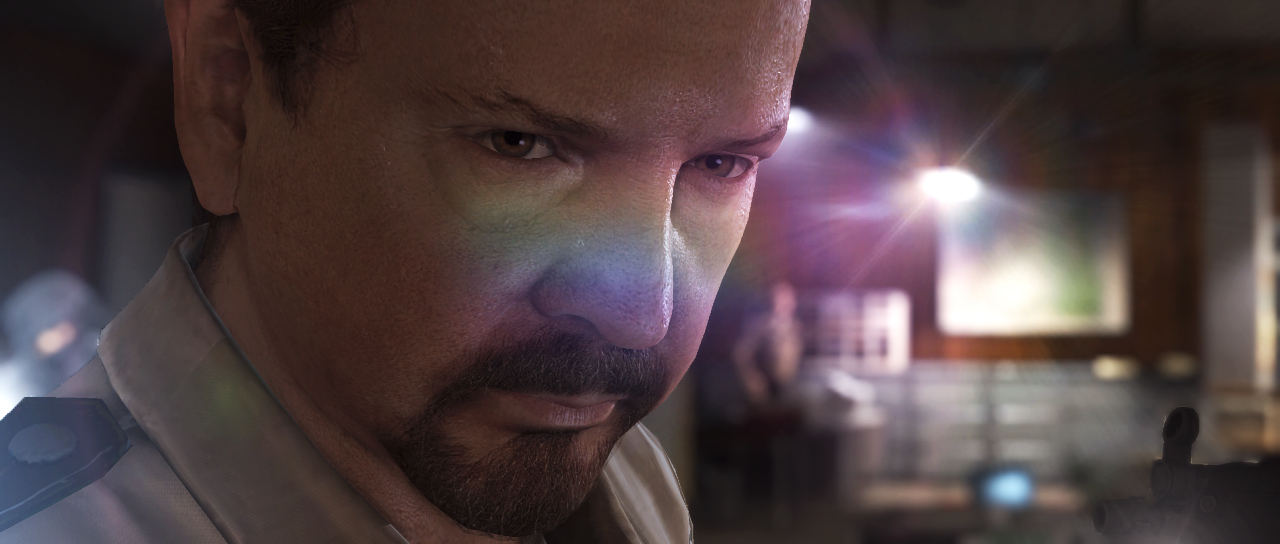
Lens flare!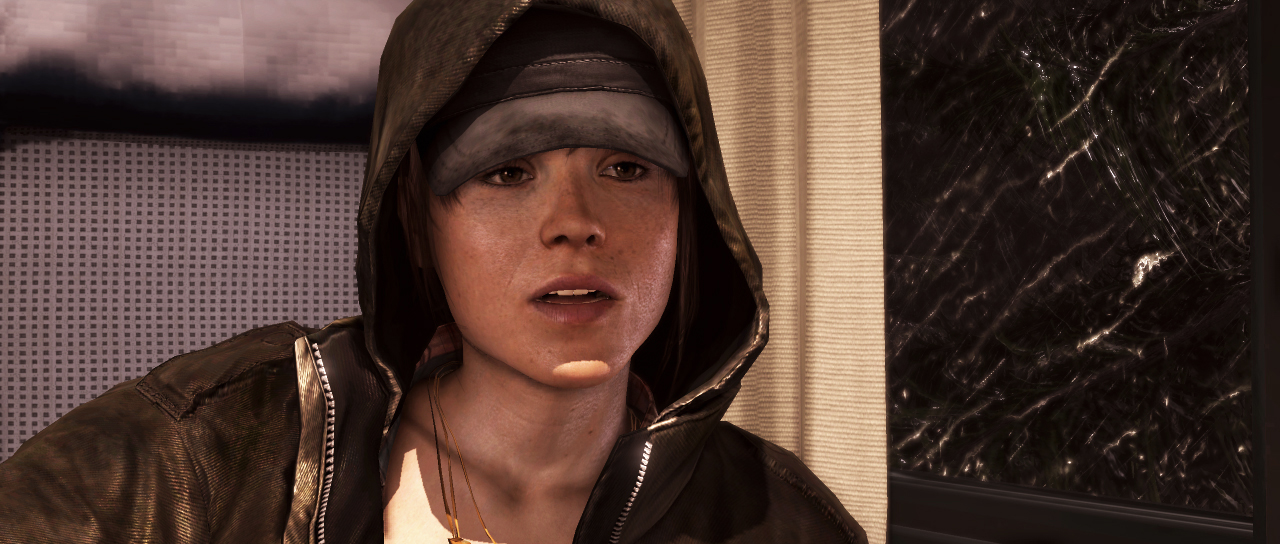
A lot of Jodie's costume changes seem like excuses to show Ellen Page in different outfits.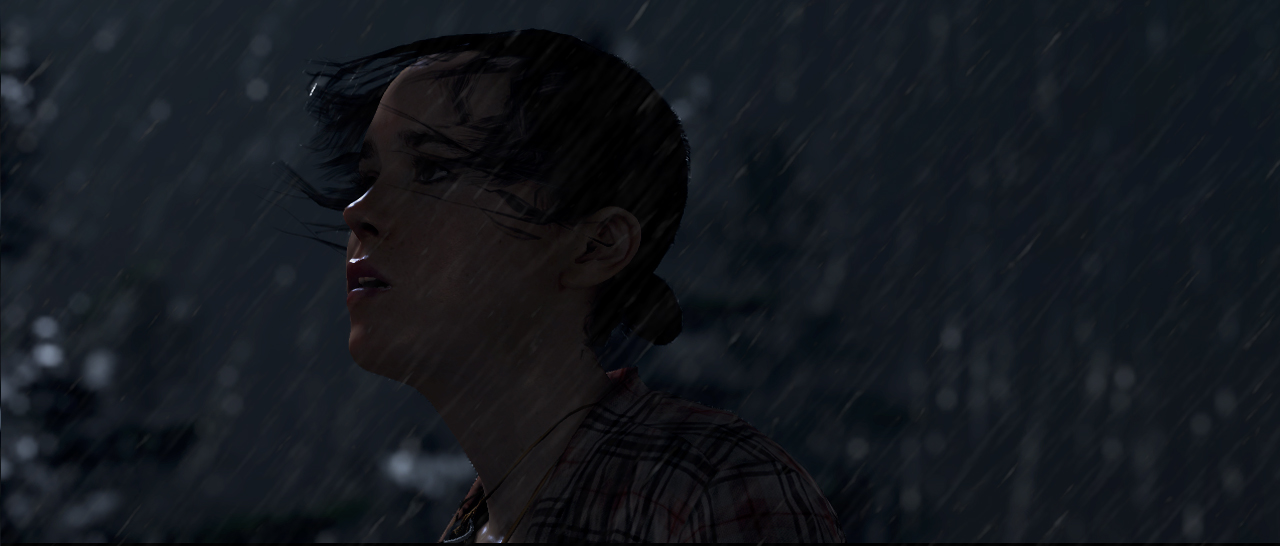
This is an actual screenshot provided by Sony. I didn't turn down the brightness or anything.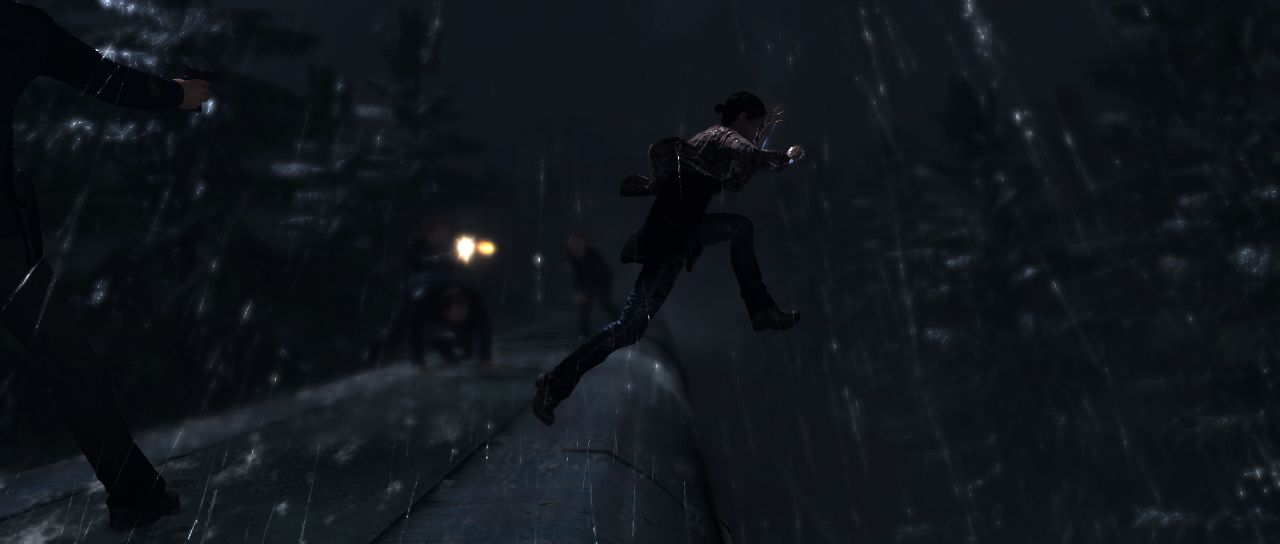
That's your cue to tap the analog stick to the right. You did it? Hooray!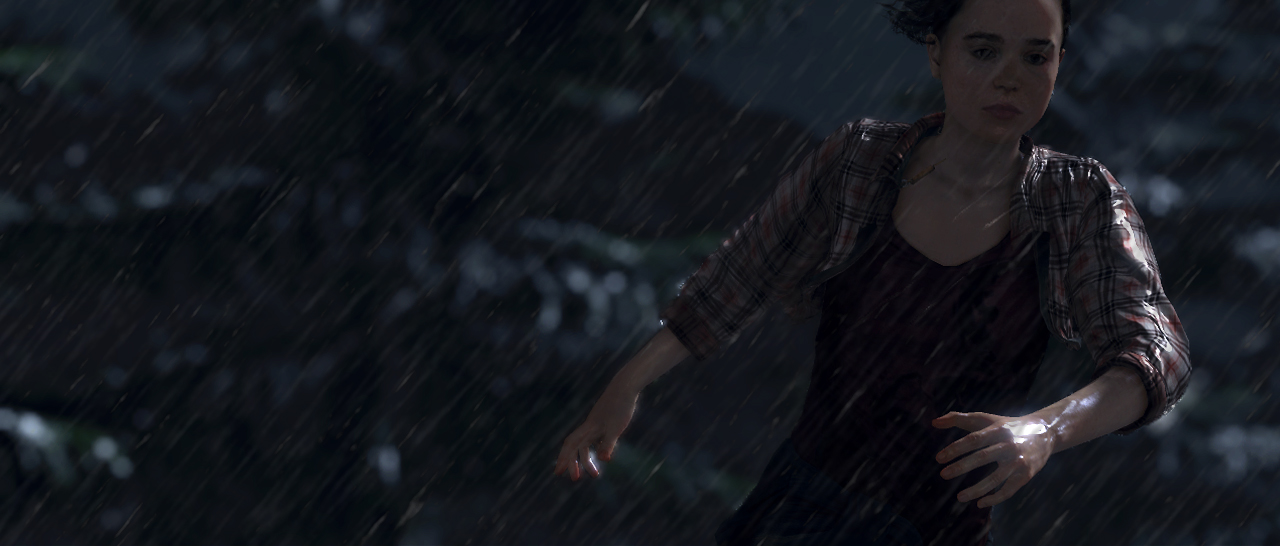
Say what you will about this game, but it really makes wet things look wet.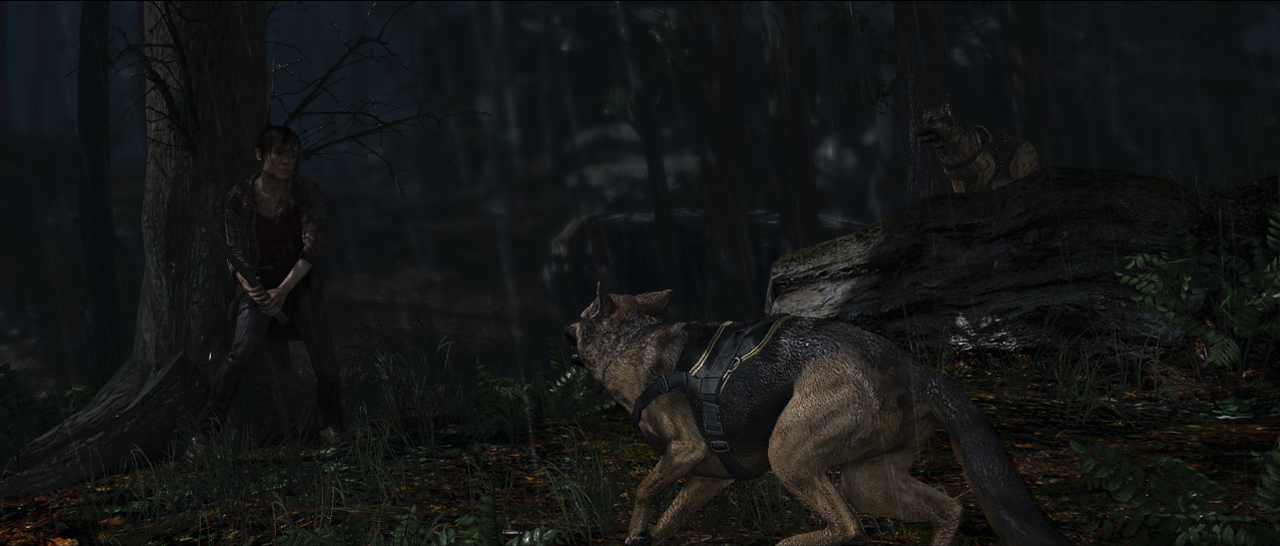
I wonder if that dog is going to kill Jodie. Oh, wait, I don't, because I know this is her flashback.
Those few good bits can't save the utter storytelling mess of Beyond, though, especially when the ending descends into a farce that combines out-of-left-field character motivations, irrational and pointless personal sacrifice, and a lazy feel-good fantasy cosmology that would make Deepak Chopra blush. In Heavy Rain, I couldn't wait to see what happened as the story slowly moved toward its thrilling conclusion. In Beyond, I simply couldn't wait for the story to end so I could get on with something else. The game represents a huge step back from its predecessor, and the lost potential could single-handedly set back the cause of interactive storytelling a great deal.
The Good
- Beautiful environmental design and character animation
- Ellen Page proves she can salvage bad material
The Bad
- Disjointed story that barely holds together through time-jumping structure
- No sense of agency or ability to meaningfully change the story
- A parade of overwrought, clichéd plot points straight out of high school creative writing class
- An utter lack of tension or anything resembling real drama
- Characters that can't hold together coherent motivations
- Insultingly easy quick time events
- Gameplay mostly boils down to "find the dot to continue the story"
The Ugly
- The fact that, somehow, David Cage took the lessons of Heavy Rain and created this
Autor:Kyle Orland
Source: arstechnica.com
Language: English
Previous News
- The Dark Sorcerer – a next gen comedy from Quantic...
- The Dark Sorcerer
- QD stories and projects not interesting anymore
- PlayFrance: interview David Cage
- [FJV 2009] Heavy Rain : Interview exclusive P3L de...
- Podcast: Kombo Breaker - Episode 45: Heavy Rain In...
- CVG: Heavy Rain delayed because it "needs space"
- IGN: new video and interview
- EDGE Online: An Audience With: David Cage
- PlayStation.Blog: Heavy Rain’s David Cage And I, T...


 Tuesday, October 08, 2013
Tuesday, October 08, 2013